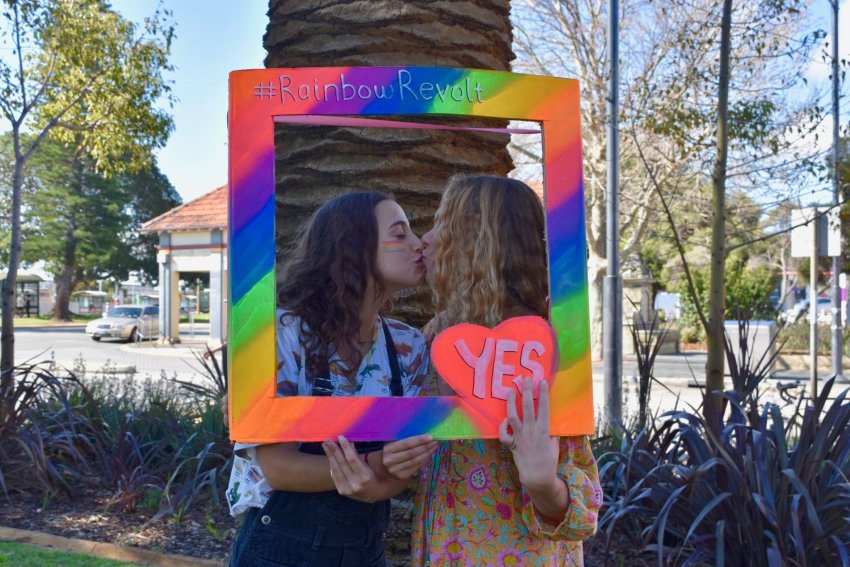
1. Legislating marriage equality will impact on rights to freedom of religion, freedom of speech and freedom to practice or implement one’s personal values.
FALSE: Marriage equality and freedom of religion/speech/values are governed by two distinct pieces of legislation. The equality campaign only wants a change in the definition of marriage as determined by the Marriage Act 1961. Religious exemptions are already contained in the Sex Discrimination Act 1984. Changing the definition of marriage in one act does not remove religious exemptions in different act.
2. Marriage is traditionally defined as being between a man and a woman.
FALSE: It was only in 2004 that the Howard government changed the definition of marriage in the Marriage Act 1961 to “the union of a man and a woman to the exclusion of all others, voluntarily entered into for life”. Prior to this addition, there was no definition of marriage being between a man and a woman in the act, only in Common Law. Therefore, in legislative terms, there is no long historically-defined tradition of marriage as being between a man and a woman.
3. LGBTIQ couples already have access to civil unions, they don’t need marriage.
Marriage is an important institution to many couples, including homosexual couples. However this campaign for equality is more than just wanting something for the sake of wanting it. Marriage provides legal security around children and adoption, wills and testaments, being classed as next of kin and more. Despite already having provisions for civil unions and de facto relationships, without marriage equality, a person’s parents or family members could have more say and rights over them in a medical and last will scenario, than that person’s partner of many years. Marriage equality is about providing equality under the law for all couples.
4. Allowing marriage equality will lead to boys wearing dresses to school.
Eventually … TRUE: Legislating equality, even if a small piece of it, is a step in the right direction towards a fairer, freer and more open-minded society. A society where there is less apprehension about coming out, perhaps a day when people won’t even need to “come out” because loving who you love and being who you are will just be accepted. In this future, yes, a boy could wear a dress to school and no one would blink. The key is that people will feel more supported to express themselves. What a scary, terrible thing to imagine.
5. Marriage equality creates an uncertain future that jeopardises the very fabric of our society.
FALSE: There are 26 other countries that have already legislated marriage equality, including Britain, Ireland, US, New Zealand, Germany, Taiwan and South Africa. These societies have continued to function; the sky hasn’t fallen in. As New Zealand National MP Maurice Williamson said in parliament on the day marriage equality was passed: "I give a promise to those people who are opposed to this bill right now. I give you a watertight guaranteed promise; the sun will still rise tomorrow, your teenage daughter will still argue back with you as if she knows everything, your mortgage will not grow, you will not have skin diseases or rashes or toads in your bed. The world will just carry on."
Like the article? Subscribe to Green Left now! You can also like us on Facebook and follow us on Twitter.